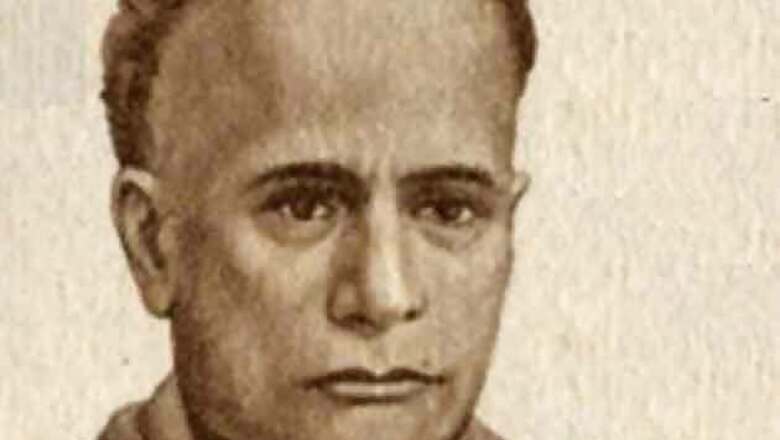
views
New Delhi: Ishwarchandra Vidyasagar, born on September 26, 1820, was a polymath in the truest sense of the word. A leading light of Bengal renaissance, he was a philosopher, academic, educator, writer, translator, printer, publisher, social reformer and philanthropist – a man of action and at the same time an embodiment of the ideal of Prajna (intellect) and Karuna (kindness).
Primarily responsible for the Widow Re-marriage Act-XV of 1856, he also wrote the "Barnoparichay" that still introduces toddlers to the Bengali alphabet in his home state. He was a highly modern man, a man who fought the Hindu establishment in promoting education for women. A master of Sanskrit, he also laid the foundation of the modern Bengali prose by reconstructing the Bengali alphabet into twelve vowels and forty consonants.
Vidyasagar studied at a village pathshaala. A student known for his dedicated learning, modest manners, supreme honesty and great respect for teachers, Ishwarchandra studied at Sanskrit College, Calcutta from 1829 to 1839. His meritorious performance in every field of study rewarded him with prizes and scholarships which were a welcome relief as he hailed froma very poor family.
In 1839, he graduated in Law For his mastery in many shastras or disciplines - kavya (poetry), alankar (rhetorics), vedanta (vedic literature and anthology), smriti (philosophy of law), nyaya (logic, science and jurisprudence), and jyotish-vidya (astrology), the College Committee coferred upon him the title of Vidyasagar (Ocean of Knowledge).
There are many stories and legends that has always accompanied his name.
Here are a few:
After landing his first job, Vidyasagar went to his village at Barsingha in West Medinipur district one day to attend a community festival. His mother attended the festival in a tattered saree whereas most women of the village had donned ornate sarees and expensive ornaments.
He apparently told his mother, "Mother, you have neither good clothes nor jewellery. Please let me know what you wish to have." His mother said, "I will tell you when the time is right."
Vidyasagar rose to higher positions in his career but his mother kept on avoiding his question till one day she said, "There are 3 jewels I desire. First, children of the village have to go far to study. Set up a primary school here Second, the village has no facilities for medical care. Please set up a health care centre here. The third jewel is something which you have to do by yourself. In the days to come, your reputation may grow. But your conduct must be such that you must share with others the benefits of the education you have received. Do not go after wealth."
Vidyasagar did everything that his mother wanted. He opened a school, a health centre and remained humble throughout his life. Vidyasagar's philanthropy was proverbial. It is said that most of his salary and the royalties of his published works were spent after helping the distressed.
Throughout his life, Ishwarchandra stuck to the traditional Indian attire of his home-spun white cotton Dhoti and Kurta. Once, while he was travelling to deliver a lecture by train, a fellow passenger, a young officer, who wanted to listen to Vidyasagar's lecture, got down from the same train with a suitcase to go to the lecture hall.
The young officer was shouting for a coolie. Vidyasagar first tried to persuade the young man to carry his own luggage and upon failing to do so, picked it up and carried it to the lecture venue. The young man then offered money to his 'porter'. Vidyasagar politely declined.
The young officer was stunned to see people welcoming Vidyasagar with garlands in the Lecture-Hall. He realised that the man who had offered to carry his suitcase at the station was none other than the respected lecturer of that evening, Ishwarchandra Vidyasagar.
Stories aside, he struggled relentlessly against all forms of corruption, blind superstition, prejudices and malpractices. He tried his best for emancipation of women He influenced the British Government to enact the Widow Remarriage Act. He also fought relentlessly to abolish the practice of polygamy from the Indian Society.
Vidyasagar lived all his life as a very modest man, a simpleton, an extremely cerebral man with an extremely generous heart. Disgruntled with some of his own family members' petty-mindedness and selfishness, he severed all relations with them and lived amongst the tribal people in his last years. He died on July 29, 1891, at the age of 70.




















Comments
0 comment